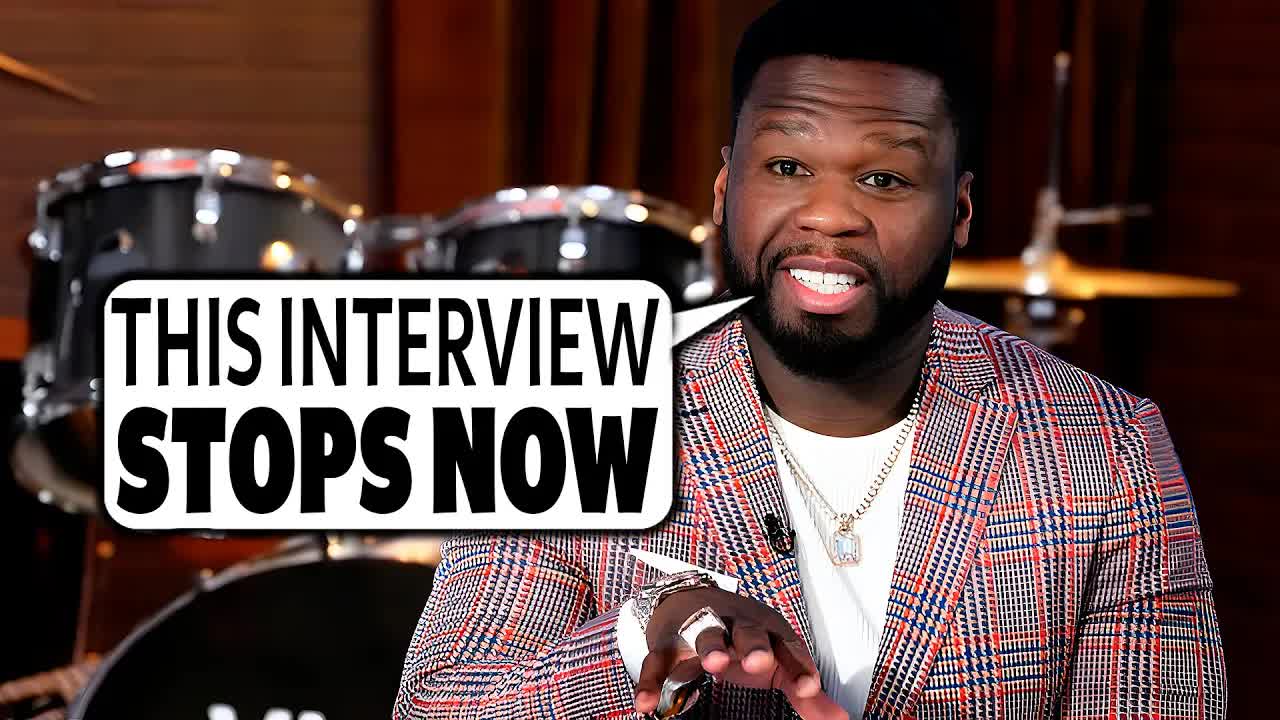In the ever-evolving world of hip-hop, few rivalries capture attention quite like that between Curtis “50 Cent” Jackson and DJ Vlad of Vlad TV.
Recently, tensions have escalated, with 50 Cent taking to social media to express his disdain for the platform and its host.
This feud is not merely about personal grievances; it reflects deeper issues regarding representation and authenticity in the industry.
The drama kicked off when 50 Cent reacted to a Vlad TV interview featuring a former associate who claimed to have been present during the infamous shooting incident involving the rapper.
In response, 50 Cent labeled the claims as “fraudulent,” showcasing his discontent with how Vlad TV portrays him and his past.
With a simple screenshot and a bold caption, he made it clear that he wanted the video removed, prompting Vlad to comply and take it down.
Vlad TV has built its reputation on candid interviews with hip-hop artists, often delving into sensitive topics.
However, 50 Cent has long criticized the platform, arguing that it promotes narratives that undermine his legacy.
He has voiced his concerns about Vlad's approach, suggesting that the host often leads guests to speak negatively about him, which only fuels their ongoing feud.
In a recent twist, G-Unit member Tony Yayo revealed that 50 Cent offered him a staggering $5 million to start his own platform and stop appearing on Vlad's show.
This move is seen as a direct challenge to Vlad's business model, especially since Yayo has become one of Vlad's most frequent guests.
The implications of this offer are significant, as it could potentially dismantle Vlad's influence within the hip-hop community.
Adding fuel to the fire, rapper Hurricane Chris also made headlines after appearing on Vlad TV.
During his interview, he took shots at 50 Cent, claiming superiority in lyrical skills.
In typical 50 Cent fashion, he responded with humor, mocking Chris's comments about Louisiana's educational system.
The back-and-forth illustrates how Vlad TV serves as a battleground for these artists to air grievances and stake their claims.
The rivalry isn't limited to 50 Cent and Vlad; it extends to other artists as well.
Hurricane Chris has challenged 50 Cent's musical credibility, asserting that he could easily out-rap him.
This claim, however, was met with skepticism, as 50 Cent's extensive catalog and commercial success paint a different picture.
The competition in hip-hop often leads to exaggerated claims, but it's evident that both artists are vying for relevance.
Tony Yayo, steadfast in his loyalty to 50 Cent, has repeatedly pushed back against Vlad's attempts to stir controversy.
In an interview, he emphasized that while Vlad seeks to provoke discussions about 50 Cent's past feuds, he prefers to focus on positivity and growth.
Yayo's commitment to his friend highlights the importance of loyalty in the world of hip-hop, where alliances can be as volatile as rivalries.
Meanwhile, 50 Cent continues to thrive outside of music, venturing into television and business.
His ability to create multiple revenue streams has solidified his status as a mogul.
From executive producing hit series like “Power” to launching successful ventures in the spirits and fashion industries, 50 Cent demonstrates that his talents extend far beyond rap.
Despite his achievements, the shadow of past conflicts looms large.
The ongoing feud with Ja Rule, for instance, remains a topic of interest.
Recent comments from both parties suggest that reconciliation is unlikely, as they continue to exchange barbs.
This rivalry, much like the one with Vlad, showcases the complexities of relationships in the hip-hop world.
As for DJ Vlad, he faces increasing scrutiny over his interview style and the impact it has on his guests.
Critics argue that his probing questions often lead to self-incrimination, creating a dangerous precedent for artists who share their stories.
Vlad's defense is that he simply asks the tough questions that others shy away from, but this rationale has not quelled the growing backlash.
The narrative surrounding Vlad TV continues to evolve, especially as more artists distance themselves from the platform.
The recent arrest of Dwayne Keith “Keffi D” Davis, linked to his interview with Vlad, raises questions about the ethical implications of such conversations.
Vlad's insistence that he never intends to harm his guests does little to assuage fears that his platform could contribute to their legal troubles.
In a landscape where loyalty and authenticity are paramount, the feud between 50 Cent and Vlad TV serves as a cautionary tale.
As artists navigate their careers, the influence of media platforms like Vlad TV cannot be underestimated.
The ongoing battle highlights the delicate balance between sharing one's truth and the potential consequences that come with it.
What does this mean for the future of hip-hop interviews?
Only time will tell if artists will continue to engage with platforms that may jeopardize their reputations or if they will seek alternative avenues for storytelling.
The dynamic between 50 Cent and Vlad TV encapsulates the challenges faced by artists in an industry where every word carries weight.
Related Posts
- Unraveling the Mysteries: Is 50 Cent Hiding a Secret?
- Sean “Diddy” Combs Faces Serious Allegations Amid Ongoing Feud with 50 Cent
- Rift and Rivalry: The Tumultuous Feud Between Dame Dash, Jay-Z, and 50 Cent
- Rick Ross vs. 50 Cent: Who Truly Lives the Luxe Life?
- Netflix Outbids Diddy for Controversial Docuseries on 50 Cent and Allegations































